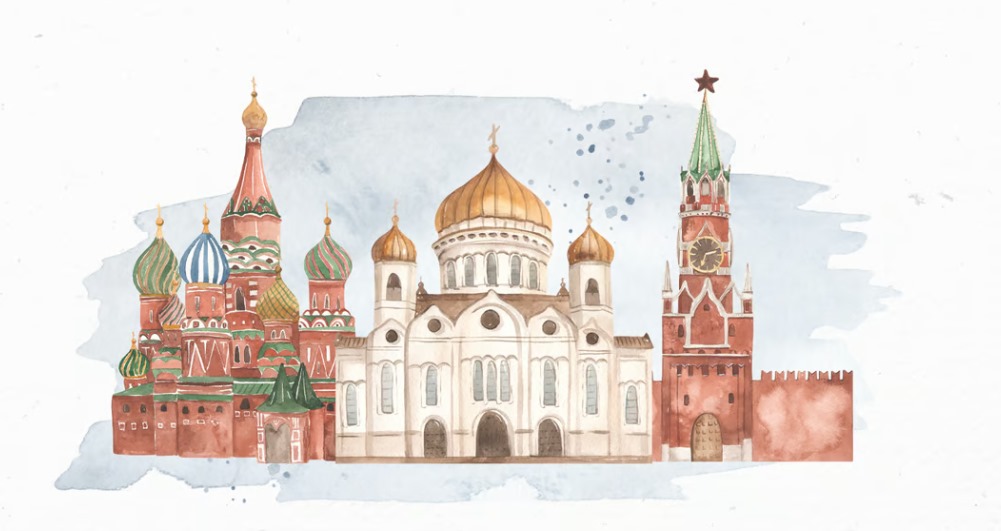7 Crore+ Customers

Affordable Premium

7 Crore+ Customers

Affordable Premium



Russia has a rich culture, gorgeous scenery, and diverse cities. Today, it attracts individuals worldwide seeking jobs, education, or tourism. Living costs are low in some places in Russia, although Moscow and St. Petersburg can be pricey.
This article analyses the average cost of living in Russia to help you prepare for specific expenses before making the move.
So, keep reading to learn more.


Russia is now among the top choices for international students looking to study abroad. The average cost of living in Russia for foreign students is broken down as follows:
Knowing the average cost of living in Russia is essential for wise financial planning, whether you're a single person, a couple, or a parent raising a family.
The following table will assist you in making appropriate financial plans:
The average cost of living in Moscow is as follows:
The average cost of living in St. Petersburg is as follows:
The average cost of living in Kazan is as follows:
The average cost of living in Novosibirsk is as follows:
The average cost of living in Yekaterinburg is as follows:
The following are some of the main variables that affect how much it costs to live in Russia:
Major cities like Moscow and St. Petersburg are significantly more expensive than rural or regional areas. Rent, utilities, and food costs are greater in larger cities, whereas living in smaller cities like Kazan or Novosibirsk is comparatively less expensive.
This expense may vary significantly depending on one's lifestyle. Dining, entertainment, and leisure expenses are typically higher in large cities. Choosing expensive products and eating out more frequently will result in higher expenses, even if you save money on food by cooking for yourself or eating at local markets.
Probably the biggest cost, particularly in the central districts of Moscow and St. Petersburg, where rents are comparable to those in Western Europe. However, the rent will be significantly less if you relocate to a smaller city or the suburbs.
Most large cities have access to affordable public transportation. For example, a monthly metro pass in Moscow costs roughly RUB 2,500, far less expensive than owning a car. Smaller cities, however, offer fewer options for transportation, necessitating the use of a car and significantly raising the costs associated with gasoline, upkeep, and parking.
Russia's utilities are cheaper than most other countries. Heating can be expensive in colder climates or older towns with outdated infrastructure. Food is expensive in the city, especially imported goods. Smaller towns have much cheaper local food. Rural areas would be cheaper, but fewer selections and long-distance delivery would cost more.
The average income in Russia is about 1,249,900 RUB per year. Below is an overview of Russia's 2025 income levels, which are necessary for a reasonable life in several categories, and the average incomes of specific job profiles in Russian Rubles.
The following table provides an overview of the average salary in Australia:
Russia offers comparatively cheap living expenses as compared to numerous Western nations. According to global standards, it's 67% cheaper than the average. Housing, public transit, and healthcare in Russia are all reasonably priced, which helps keep living expenses down for Russians and visitors.
Wages in Russia are far lower than in other industrialised nations, and social services may need to be more consistent. Look at the table below that compares the average living cost in Russia with other major places:
The following advice will assist you in reducing your cost of living in Russia:
Keep tabs on your expenditures. Spreadsheets and budgeting apps will highlight areas where you overspend so you can save.
To reduce housing expenses, rent flats in suburban areas or city outskirts. You can even share the apartment with other people to divide the cost.
The public transportation system in Russia is reasonably well-developed, especially in Saint Petersburg and Moscow. Using the bus, tram, or metro will save you much money than driving a car.
To save on groceries, Purchase large quantities from wholesale retailers or go grocery shopping at the neighbourhood outdoor markets. Seasonal and local produce is typically less expensive.
Reduce your utility costs by residing in flats equipped with energy-efficient appliances and being mindful of how little you use heat and electricity, particularly in winter.
While studying in the nation, you can find part-time work to help pay for some costs. It is highly recommended that students find part-time work when studying in Russia.
The following article provides an approximate idea of average expenses in Russia, should you relocate there for study purposes or with your family. The cost of living in Russia is cheaper than in many Western countries, and you can achieve affordable living via budgeting and sound financial planning in a nation with such a rich and diverse history.
Protect What Matters - Explore Other Insurance Options